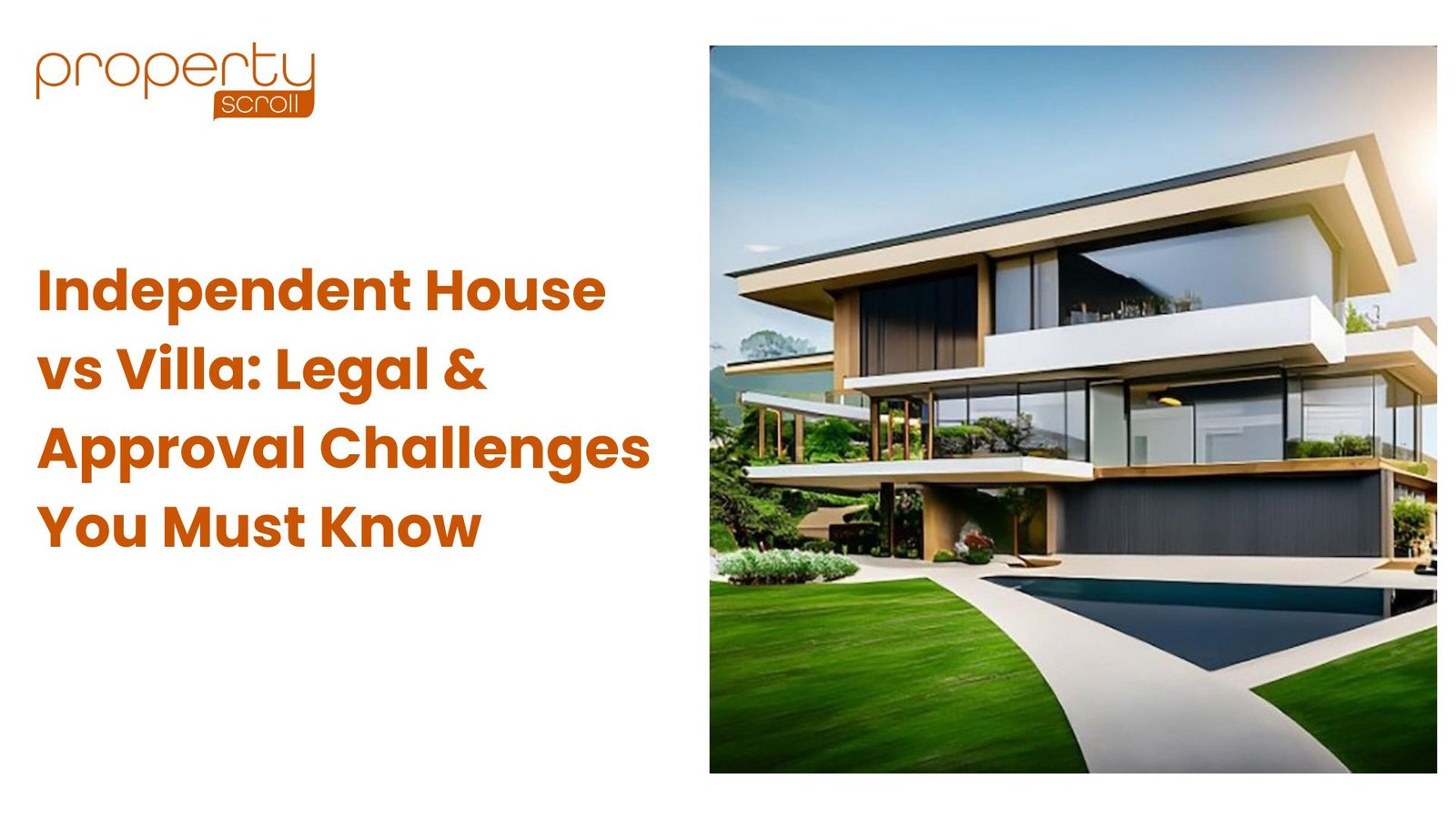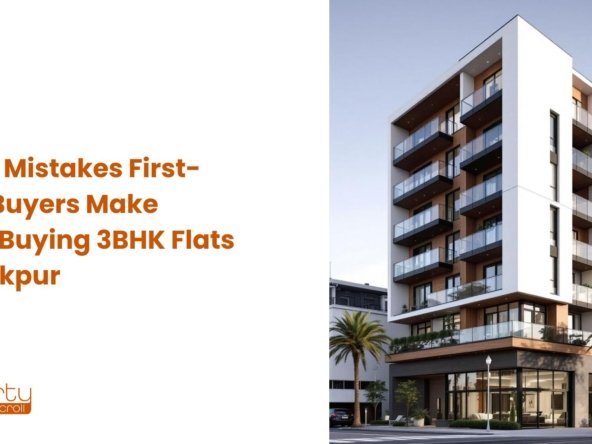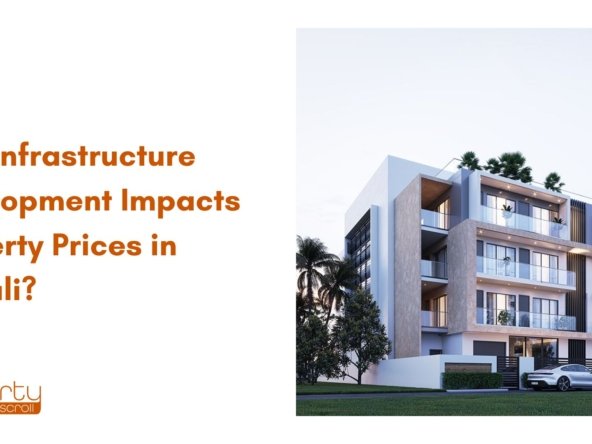When people start their home-buying journey, one of the most common debates is home vs house and, more specifically, whether to invest in an independent house or a villa house. At first glance, both may look similar—they give you the freedom of private living, more space, and a sense of ownership. But when it comes to legal procedures, approvals, and compliance, the home house difference becomes more than just words—it defines the very foundation of your investment.
In this article, we’ll break down the legal and approval challenges you must know when choosing between an independent house and a villa, along with expert insights that every modern buyer should keep in mind.
Understanding the Home House Difference
Before diving into approvals, let’s clear the home vs house confusion.
- A house usually refers to the physical structure—walls, roof, rooms, and land.
- A home carries emotional value, where the house becomes a space for family, comfort, and lifestyle.
This distinction matters because legal processes often deal with the “house” as a tangible asset, while buyers look at it as a “home” they dream of.
When comparing an independent house to a villa house, the home house difference extends further into lifestyle, regulations, and financial considerations.
Ownership and Title Clearances
Independent House
- Buying an independent house means you’re purchasing both land and structure.
- You must check title deeds, ownership history, and any prior disputes.
- Encroachments or multiple claims on the same land can become a long legal battle.
Villa House
- Villas are usually part of gated communities or planned townships.
- The developer provides pre-verified title clearance, reducing the risk of disputes.
- However, you still need to verify that the builder has full development rights and government approvals for construction.
Key Takeaway: Independent houses often require deeper due diligence on ownership, while villas benefit from pre-cleared land titles but rely heavily on builder credibility.
Land Use and Zoning Permissions
Independent House
- Buyers must ensure the plot is registered as residential land and not agricultural or commercial.
- Converting land use involves navigating municipal or panchayat approvals, which can be complicated.
Villa House
- Villas come under approved layouts. Developers usually handle zoning and land use clearance in advance.
- However, hidden risks exist if the builder bypasses regulations or fails to obtain necessary NOCs.
Key Takeaway: With villas, you’re paying for convenience in legal groundwork. With independent houses, you carry the responsibility to check every detail yourself.
Building Approvals & Layout Sanctions
Independent House
- Every independent house requires building plan approval from local municipal authorities.
- Any deviation from the sanctioned plan (extra floors, unauthorized extensions) can result in penalties or even demolition orders.
Villa House
- Villas follow a uniform master plan approved by the development authority.
- Chances of deviation are lower since they are mass-developed projects.
Key Takeaway: Villas reduce risks of unauthorized construction, while independent houses need constant vigilance for compliance.

RERA Compliance
- Independent House: If you construct an independent house on your own land, RERA (Real Estate Regulatory Authority) may not apply. However, this also means you don’t enjoy RERA protection against delays or fraud.
- Villa House: Villas developed as part of a larger project are RERA-registered, offering legal recourse for delays, quality issues, and transparency.
Infrastructure & Utility Approvals
Independent House
- You must apply individually for water, sewage, and electricity connections.
- Approvals can take time and often involve multiple government departments.
Villa House
- Utilities are provided as part of the project, with bulk approvals taken by the builder.
- Maintenance is smoother under a Residents’ Welfare Association (RWA) or society.
Loan & Financing Challenges
- Independent House: Banks may hesitate to approve loans if land titles aren’t clear. Loan approval depends heavily on documentation.
- Villa House: Financing is easier as banks often have pre-approved tie-ups with reputed villa projects.
Maintenance & Legal Liability
Resale & Legal Transferability
- Independent House: Resale value can be high due to land ownership, but legal transfers may be complicated if records aren’t updated.
- Villa House: Resale is easier in planned communities, but appreciation may not match independent plots.
Security, Encroachments & Community Approvals
- Independent House: Security and encroachment risks are higher. You may need to install your own legal protections (boundary walls, CCTV, etc.).
- Villa House: Gated communities with 24/7 security minimize such challenges, though you may face RWA rules on modifications.
Role of Online Property Portals
Today, an Online Property Portal makes this decision easier. Instead of running pillar to post, buyers can:
- Compare villa house vs independent house legalities in one place.
- Verify developer RERA details and past project approvals.
- Access guides on home vs house differences from a legal perspective.
- Connect with legal experts and property lawyers before committing.
Such portals bridge the knowledge gap between a house as an asset and a home as a dream.
Final Thoughts
Choosing between an independent house and a villa is not just about lifestyle or aesthetics. It’s about navigating a maze of legal approvals, compliance checks, and ownership clarity.
- If you want complete autonomy, land value appreciation, and the ability to design your dream home, an independent house is ideal—but be ready for legal legwork.
- If you prefer convenience, community living, and pre-cleared approvals, a villa house is a safer option—though it comes with higher costs and limited customization.
Ultimately, the right choice depends on how you balance freedom with security, and risk with convenience. By leveraging an Online Property Portal, you can compare, analyze, and make smarter decisions—transforming your house into the perfect home.



